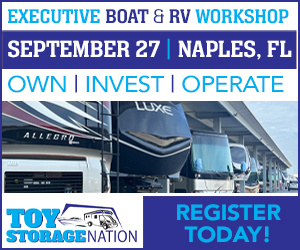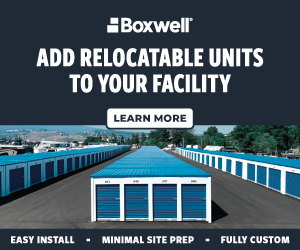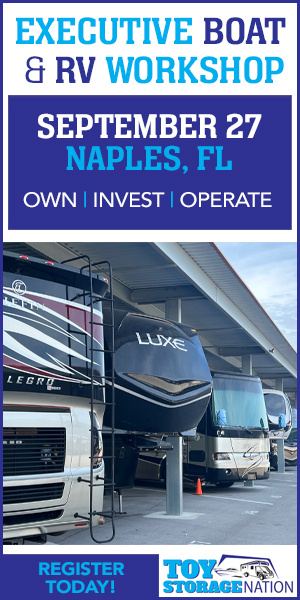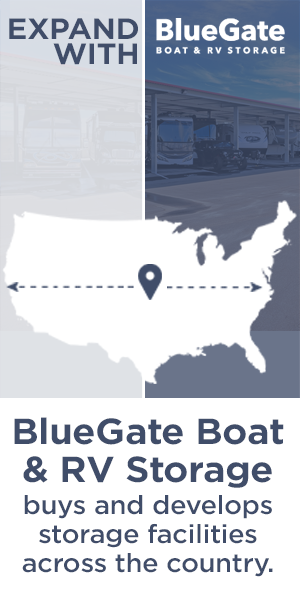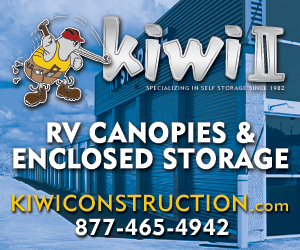
In almost every state, self-storage facility owners have been provided with a statutory lien on their tenant’s stored property (including vehicles and boats) for rent and other charges which gives the facility owner the right to sell their tenant’s property at public sale without the necessity of a court hearing if the tenant has failed to pay rent. This right of non-judicial sale of tenants’ property is a unique characteristic of the self-storage industry and allows facility owners a powerful tool in the collection of rent and recovery of rentable storage spaces at the facility. Nevertheless, the right to foreclose on the storage lien comes with the tremendous responsibility of strictly following the legal requirements of that foreclosure. All required notices must be sent, and all-time periods for demand, notice, publication (advertisement), and sale must be adhered to. The failure to follow any of the legal requirements may expose the storage facility to tremendous liability.
In order for a facility owner to enforce its lien on the tenant’s stored property, the owner must understand and fully comply with its state’s lien laws. When wrongful sale claims are brought against self-storage owners, courts have generally found in favor of owners who follow the law and disfavor those facilities that fail to fully comply with the procedures set out in the state self-storage lien statutes. As such, it is crucial for storage facility owners to take the time to review their state’s self-storage laws and ensure that they fully understand all requirements under the law (it is also best practice to review the state’s self-storage laws annually for changes, as state self-storage laws are being updated on a more frequent basis). Lien law education and training are essential elements in every self-storage operation. Self-storage owners and managers must be trained to understand the laws and to follow proper procedures if they intend to foreclosure on their tenant’s property. Without a clear understanding of the law and the requirements for foreclosure, wrongful sales will be unavoidable.
Each state has unique aspects to its self-storage lien laws. However, most states have similar basic requirements outlining what a facility owner can do and what a facility owner is required to do to enforce its lien. For example, most states now specifically allow the facility to deny access to a tenant when the tenant is in default (or when the tenant has been in default for a certain number of days).
Additionally, most states have similar procedure requirements when it comes to the enforcement of the owner’s lien. The first step is usually sending out a notice to the tenant that he or she is in default and that the owner is enforcing its lien on the tenant’s stored property (some states require more than one notice and some states dictate when the lien notice is to be sent out). It used to be that the notice had to be sent to the tenant by certified mail, but now many states permit the notice to be sent to the tenant by verified mail or e-mail (if certain requirements are met). The notice generally must include a number of things, including the time and place of the sale and a demand for payment from the tenant within a specific amount of time. If the tenant has not paid the past due amount owed to the owner by the expiration of the demand time stated in the notice, most state laws require the owner to publish an advertisement of the sale in a local newspaper of general circulation in the area where the facility is located prior to the auction occurring (some states are now allowing the advertisement to be placed online). A number of states require the advertisement to be run at least twice prior to the sale date. A facility should obtain written verification from the paper that the notices have been published and should keep those confirmations in the tenant’s file for later proof, if necessary.
If the property stored is a car, boat, or RV, after the expiration of a specified time period after the advertisements, the facility may conduct the sale of the vehicle or boat, but also may have the option to have the titled property towed off the facility. Towing may require additional notice to the tenant depending on the state law. If the facility moves towards a sale of the tenant’s property, the facility must continue to comply with the state self-storage laws, as the way the auction is handled is an important part of a facility’s foreclosure process. Some states require the use of licensed auctioneers to run storage auctions. While not required, it is also important for the facility to have uniform rules for all bidders to follow in bidding on storage spaces up for auction. Bidders should sign a form indicating their understanding of the rules of the auction relating to payment (i.e. cash or certified funds) and removal of the property (i.e. 48 hours or property is considered abandoned). Having bidders sign these rule forms can help the facility avoid later disputes by the bidders relating to the sale.
Further, the highest bidder should be required to sign a winning bid form, showing that party’s name, address, phone number, unit number, and the dollar amount of the bid. This winning bid form should state that the bidder must remove the property within 48 hours. If the property is not removed within that time, the form should state that the property will be deemed abandoned and that the facility owner will be allowed to remove and dispose of the property without any claims of trespass or conversion. The only exception would be if a delay was approved in writing by the facility owner or its authorized representative prior to the termination of the 48-hour period. Certainly, the bidder may choose to become a tenant in the facility and hold the property in the storage space for a certain period of time. If so, the bidder should be required to sign a lease just as any other tenant for the storage space would be required to do.
Finally, the proceeds of the sale of the property should be distributed pursuant to the terms of the state self-storage law. If an owner is still owed money after the sale, it should have a provision in its rental agreement stating that the owner the legal right to seek collection for the difference. If so, the owner would have the right to sue in a court (most commonly a small claims court), for the difference between the amount obtained in the auction sale and the amount owed under the rent.
Lien sales are one of the greatest risks for liability for self-storage facilities. It cannot be said enough that the goal of self-storage is to rent storage spaces and not to sell the property. Unless a facility owner has tried all other avenues to resolve the outstanding balance with its tenant, the sale of the tenant’s property should be the last resort, especially for vehicles and boats where towing is a good alternative to lien sales in those states that permit towing. If a facility has to sell a tenant’s property, by recognizing the risks of foreclosing on the tenant’s property, it should ensure that it is following all state legal requirements in doing so. Unfortunately, the majority of wrongful sale claims arise out of simple ministerial mistakes as compared to intentional acts. To help protect a facility owner from wrongful sale claims, facilities should create a procedure to allow a second person, whether it be a manager or other facility representative, to review all aspects of a tenant’s file and the foreclosure process for that specific tenant before the property is sold at auction. Checklists are also useful to help confirm that legal requirements and procedures are followed and hopefully catch any errors in the paperwork and other missteps in the foreclosure process. Given the potential liability risks associated with foreclosure sales, any sale of a tenant’s property should be handled cautiously and carefully.


















